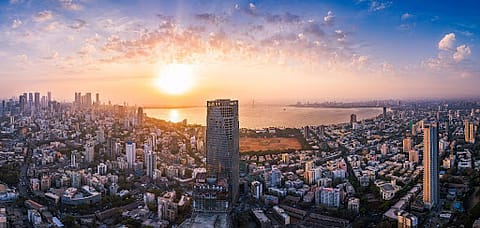Why buying a house in Mumbai in the backdrop of an interest rate increase still makes sense?
For the past year or so after the first round of Covid, Mumbai has been registering record number of house sales month after month.

From being a small sleepy fishing settlement spread over a small archipelago of seven islands in the 1800s to being the commercial capital of India, Mumbai has come a long way to emerge as one of the megalopolis in the world. Being the financial capital also means that people from all over the country flock here to earn their living. It is said that Mumbai rewards hard work and enterprise and helps you make your professional dreams come true leading it to be often called as ‘city of dreams’.
For the past year or so after the first round of Covid, Mumbai has been registering record number of house sales month after month. The pent up interest of home-buyers to secure a home has been inclined towards closing deals with Grade A developers like Lodha , Godrej, Hiranandani; to name a few. In fact newspaper headlines talk about the sale of houses in Mumbai is at a decadal high indicating that the dream of owning a home in the metropolis is close to becoming a reality, more than ever in the past couple of years.
To better understand whether this explosive growth in the Mumbai residential market is here to stay and what it means for the prospective home buyer especially when the interest rates have been hiked by the Reserve Bank of India (RBI) in a sudden move, first such move since May 2020, one needs to examine what are the underlying fundamentals fuelling this move.
Interest rates
The decision of the hike of 40 basis points (100 basis points equals one per cen) in the benchmark lending rate was taken in an unforeseen meeting of its Monetary Policy Committee on May 4, 2022. It also raised the cash reserve ratio (CRR) by 50 bps.
Recommended Stories
The decision of the RBI to raise the repo rate to 4.4% needs to be examined through the prism of its desire to curb inflation which is at an 18-month high on the back of the geo-political uncertainty.
However experts opine that the rate hike is unlikely to end here. It is widely believed that the MPC is going to continue its hawkish stance where inflation is concerned. As per recent reports, the MPC is decreed to maintain inflation within the RBI’s prescribed band of 2-6 per cent.
(INR CR)
Will the interest rate rise higher
According to economists tracking the Indian economy, the MPC which meets every quarter to assess the inflation and the interest rates is likely to continue its belligerent stance of sucking out liquidity in the system and keep increasing the interest rates on a periodic basis to keep inflation in check. This is largely based on the premise that the next wheat harvest is going to be lower than predicted, country being still dependent on edible oil imports, the prices of which are rising as Indonesia, one of the largest exporter of palm oil has banned its exports and the fact that the cost of agricultural inputs is on the rise too. This in turn means that food inflation is here to stay and will continue to push inflation higher resulting in periodic rises in interest rates.
From a home buyer perspective, it’s important to gauge how high the interest rate goes and its likely impact on their EMIs and more importantly the guidance on whether it’s still the right time to buy a home.
In a recent poll by Reuters, a leading international news agency and the largest in the world, of 53 economists tracking India reveals that over 25% of them feel that RBI will hike the benchmark lending rate by 35 bps to 4.75% from the current rate of 4.4% in the next scheduled meet of RBI’s MPC in June, 2022. More than 37% of the economists polled expect a more aggressive stance and anticipate an upward shift of 40-75 bps. Meanwhile, Nomura, a Japanese research firm closely tracking the Indian economy, predicts a cumulative hike of 200 bps, i.e. two per cent by the third quarter of 2023.
This will have an impact on housing loans
Retail inflation, on which RBI’s MPC decides its interest rate is at an eight-year high of 7.79% is well above RBI’s stipulated band in the period of January to April 2022. It has risen to this high from a level of 6.97% last month and from 4.23% last year. This era of high inflation is expected to remain as supply chain disruptions fuelled by global geo-political uncertainty will ensure a high inflation in the coming months, thus keeping an upward pressure on interest rates.
This will increase construction costs, which will in turn increase prices for homes
With the Mumbai residential market continuing to grow and poised at an inflection point in light of record month on month purchases, the potential home buyer is faced with a twin dilemma of prices going up due to increasing demand and increasing interest rates. In this situation, the home buyer is well advised to buy the dream house now before the interest rates peak.
Articles under 'Fortune India Exchange' are either advertorials or advertisements. Fortune India's edit team or journalists are not involved in writing or producing these pieces.